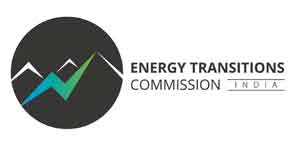
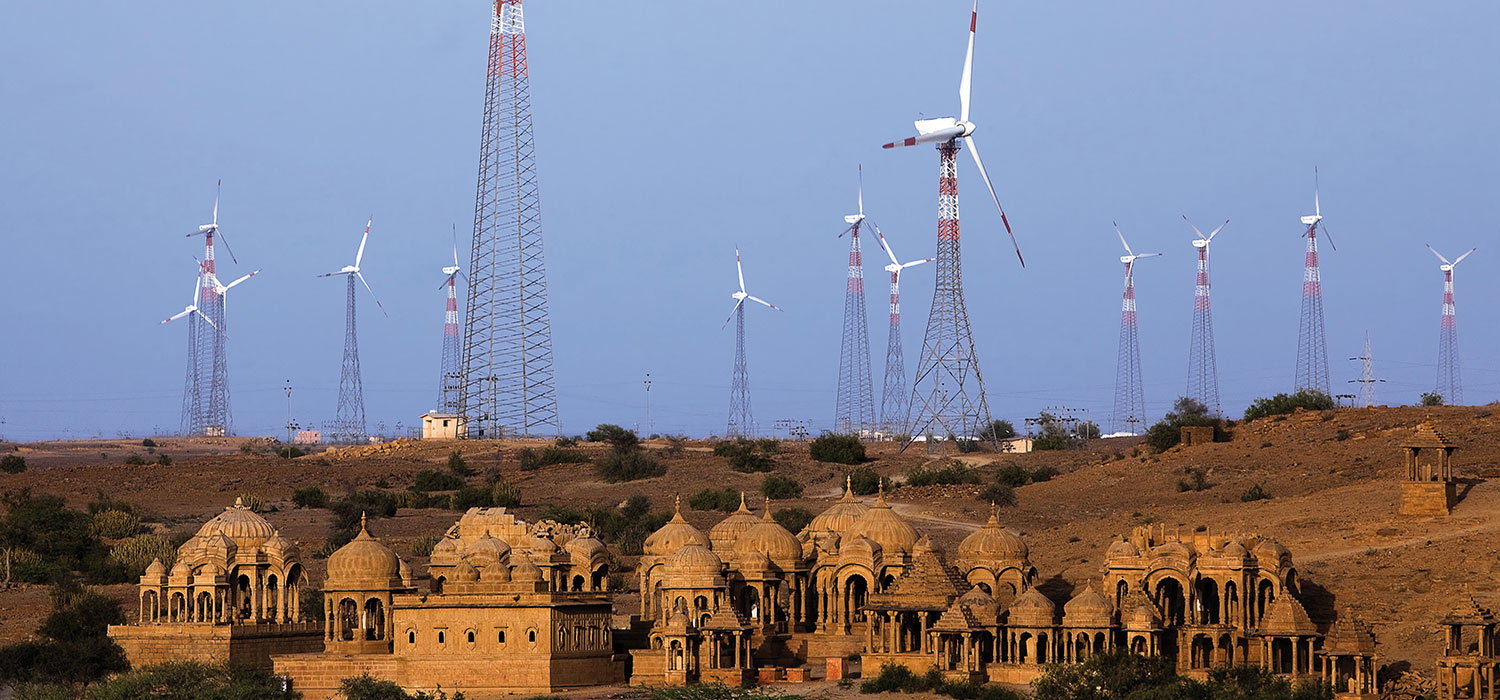
The availability of affordable and reliable electricity has been an important requirement for development of any country. India has made strides in this regard in recent decades, with electricity shortages declining and connectivity increasing. A key challenge, however, is decarbonisation of electricity generation to make it sustainable and meet India’s climate goals. In this regard, India has launched one of the world’s most ambitious renewable energy programmes, with the goal of achieving 175 GW of renewable capacity by 2022, and 450 GW of renewable capacity by 2030.
Achieving this goal will require holistic in-depth analysis, tailored to the circumstances of the Indian electricity sector, and a collaborative platform among key stakeholders. The Energy Transitions Commission thus works on pathways for transition to a decarbonised power sector in India.
Under the theme of electricity transitions, ETC aims to –
- Inform the post-2022 policy for the electricity sector through definition of new pathways and policies for 2030 and 2050
- Test the hypothesis that India can meet rapidly rising electricity demand up to 2030-2035 with an increasing share of renewables, limited new coal based generation investments, with due consideration of affordability, grid security and minimal disruption to the sector
- Identify key actions, policies and finance requirements to make this feasible along the milestones of 2022, 2027, and 2030
- Influence policy decisions to be taken around 2019-20 regarding the longer-term pathway and policies for the Indian energy sector beyond 2022
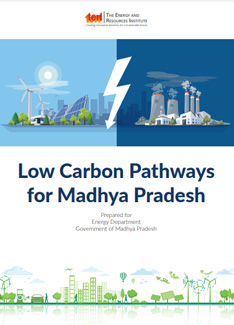
Project Report
Low Carbon Pathways for Madhya Pradesh
Low carbon pathways for power sector have been a subject matter of study in India since India’s Intended Nationally Determined Contributions (INDCs) included a target of 40% non-fossil fuel capacity by 2030 and reduction of carbon intensity of economy by 30-35% by 2030 as compared to 2005 levels. The study undertaken by TERI for Madhya Pradesh in the above backdrop had primary objective of finding out least cost investment in new generation plants over and above the ones which have already been planned, to meet the anticipated demand profile with least cost dispatch of the generation fleet in the short and medium term.
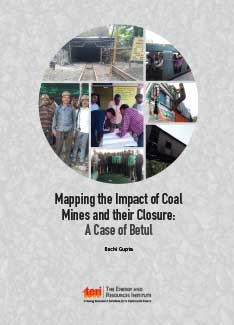
Project Report
Mapping the impact of coal mine and their closures: A case of Betul
This study looks at the impact of coal mine closures in Betul, Madhya Pradesh. It provides an overview of the kinds of linkages that coal established with the district's economy and the nature of socio-political dynamics that were brought about by the decline in mining
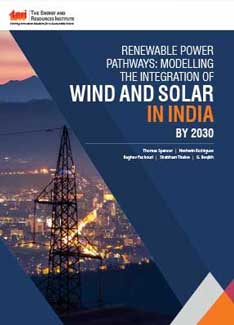
Project Report
Renewable Power Pathways: Modelling the Integration of Wind and Solar in India by 2030
The scale of variability presented by renewable sources of energy like wind and solar pose challenges to India's energy transition. This report identifies strategies that could accommodate their growth so that India can meet its renewable energy targets
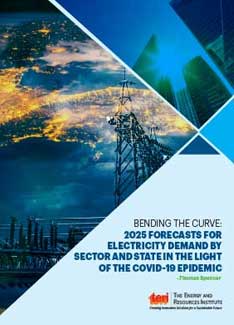
Project Report
Bending the Curve: 2025 Forecasts for Electricity Demand by Sector and State in the Light of the COVID Epidemic
This report looks at the impact that the COVID-19 pandemic and the consequent economic crisis would have on mid-term electricity demand in India

Press Release
Global Coalition of Energy, Industry and Finance Leaders Calls for Economic Stimulus to be Invested in the Economy of the Future
The Energy Transitions Commission highlights 7 key priorities to help the global economy recover while building a healthier, more resilient, net-zero-emissions economy
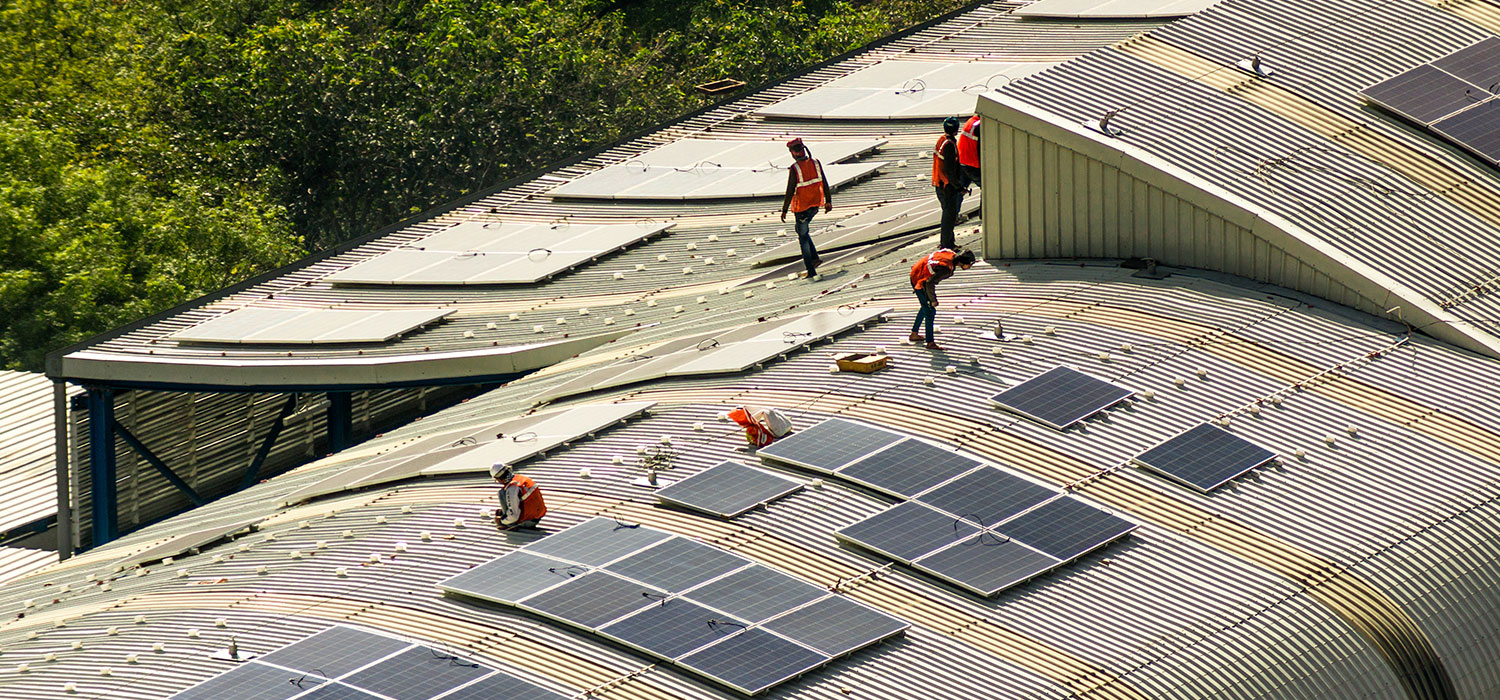
Interview
The issue of renewable energy availability in India is over; now it's about scale-up: Dr Ajay Mathur
In the light of falling renewable energy prices in India and greater energy efficiency and energy access in the country, Dr Ajay Mathur, Director General, TERI, discusses India's energy outlook with Jason Bordoff of Columbia University's SIPA Centre on Global Energy Policy, in the Columbia Energy Exchange podcast.
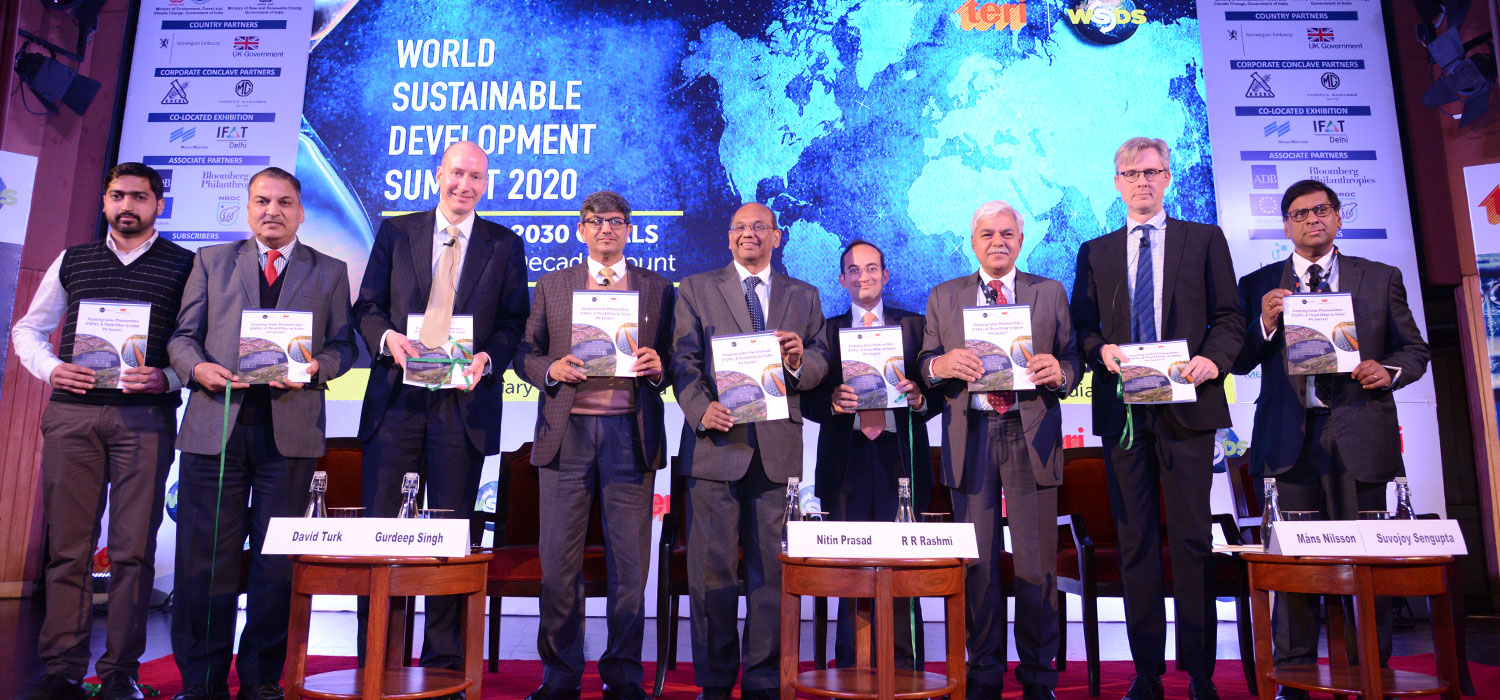
Project Report
Potential Assessment of Floating Solar PV (FSPV) in India
The report 'Floating Solar Photovoltaic (FSPV): A Third Pillar to Solar PV Sector?' is the result of a potential assessment of FSPV in India, as part of the ETC programme. It has found that India's reservoirs have 18,000 square km of area that has the potential to generate 280 GW of electricity through floating solar photovoltaic plants.
The report was released during a session on 'Leadership Coalition on Energy and Industry Transition' during the World Sustainable Development Summit 2020.
Video
TERI CBS Future Unfolded series – Energy Transitions in the Indian Landscape
Mr Rajiv Ranjan Mishra, Managing Director- India, CLP India Private Ltd. and Member, TERI CBS Executive Committee provides insight on energy transitions in the Indian context and what steps are required to facilitate implementation of renewable energy in India.
TERI Council for Business Sustainability's 'Future Unfolded' series addresses a variety of critical issues– ranging from low carbon pathways to circular economy- within the sphere of sustainable development. It showcases ideas, insights and essential commentary from some of the premier thought leaders, academics and industry champions of today.
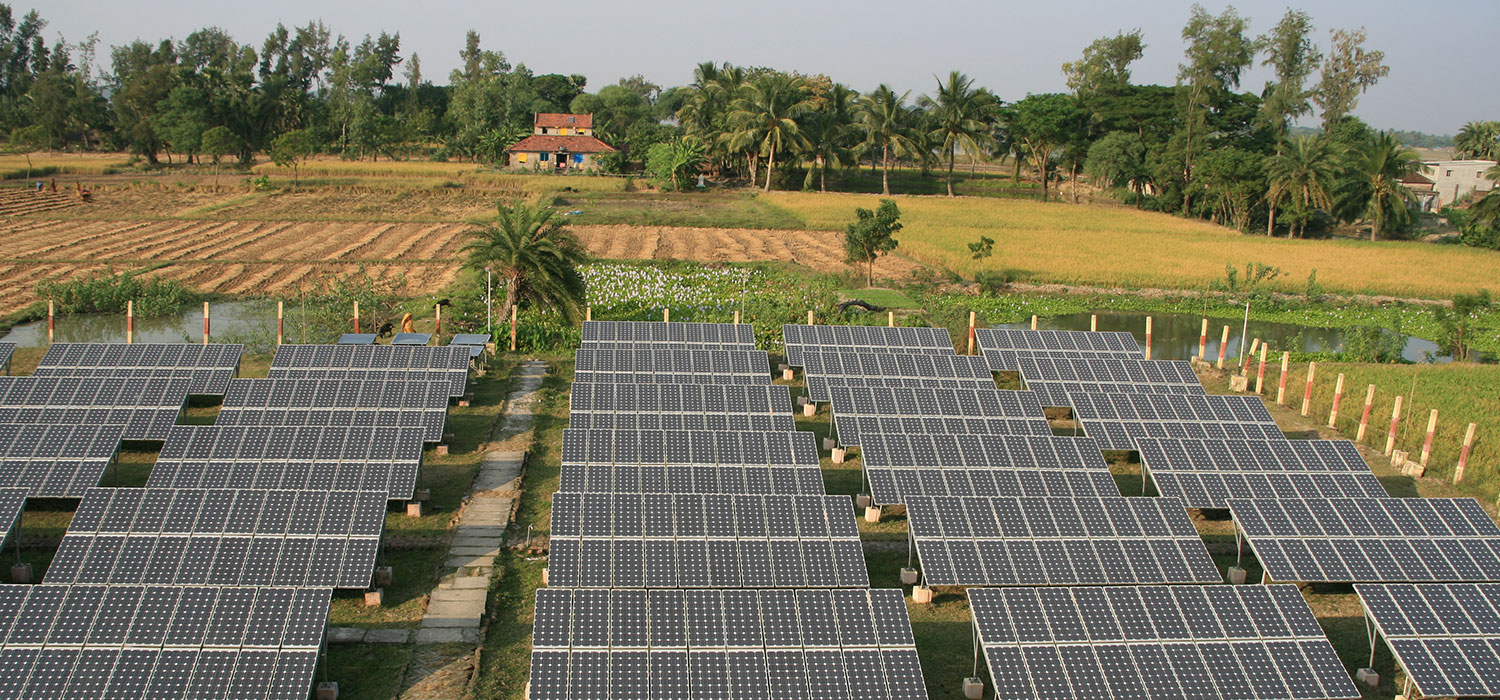
Discussion Paper
Understanding India's electricity sector transition to renewables
The discussion paper 'Understanding India's Electricity Sector Transition to Renewables' aims to provide an overview of the emerging transition of the Indian power sector to higher renewables. The paper asserts that in the future, the pace of renewables' growth will be determined by the rate at which the operation and installed technology of the electricity system can be made more flexible, rather than just by the cost of solar or wind electricity.
Report
Accelerating India's transition to renewables: Key findings from Energy Transitions Commission India
ETC India published three detailed technical reports on how India can grow the share of renewables in its electricity system by 2030. Their findings indicate that India can achieve 30% of variable renewable energy generation by 2030 (wind and solar), and 45% zero carbon generation, including hydro and nuclear. This would be an unprecedented leapfrogging to decarbonisation of the electricity sector.
Policy Paper
Full value chain solar PV manufacturing in India - TERI's recommendations
TERI's policy paper titled 'Solar PV Manufacturing in India: Silicon Ingot & Wafer PV Cell - PV Module' suggests that India should take up full value chain solar manufacturing in a phased manner. The paper, published under the ETC India programme, takes an overview of global solar PV industry and its evolution, and compares Indian PV manufacturing with that of China before coming up with its set of recommendations.
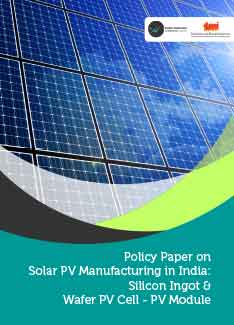
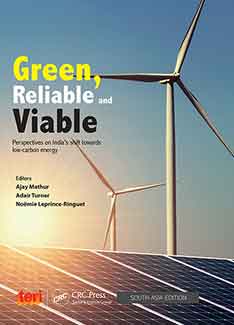
Publication
Green, Reliable and Viable: Perspectives on India's shift towards low-carbon energy
The book, edited by Dr Ajay Mathur, Lord Adair Turner, and Noëmie Leprince-Ringuet, highlights that India's energy transitions present tremendous opportunities but also challenges, transitioning to low-carbon energy both socially and economically desirable and feasible, and that energy transitions concern every sector and all stakeholders. Contributors such as Sumant Sinha, Nitin Prasad, Saurabh Kumar and others, bring forward viewpoints from a spectrum of stakeholders.
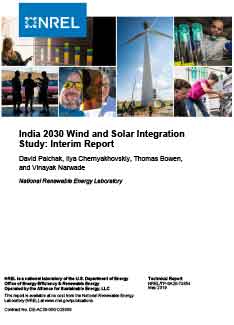
Report
Interim report on wind and solar integration in India by 2030
Annual simulations of 2030 operations demonstrate that a 22% annual penetration of wind and solar is manageable by India's grid. The interim report 'India 2030 Wind and Solar Integration Study' is part of a broader set of analyses under the ETC, which includes collaborations with TERI, Climate Policy Initiative (CPI), and a broad stakeholder community.
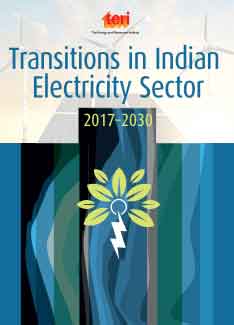
Report
Transitions in Indian Electricity Sector 2017-2030
The report is a result of a study initiated by TERI to bring out possible transitions that could address the changing electricity demand and supply scenarios. The report came in the backdrop of a major transformation in the Indian electricity sector. The accelerated pace of generation capacity addition in the preceding years of the report led to a situation wherein the electricity supply potential became greater than the economic demand, something unprecedented in the history of the Indian electricity sector. Changes were also seen in the energy mix due to enhanced policy focus on climate change, energy security concerns, etc., due to which the penetration of renewable electricity, especially from wind and solar energy, increased steadily and were projected to grow much faster in the following years.
See Industry Transition page here



